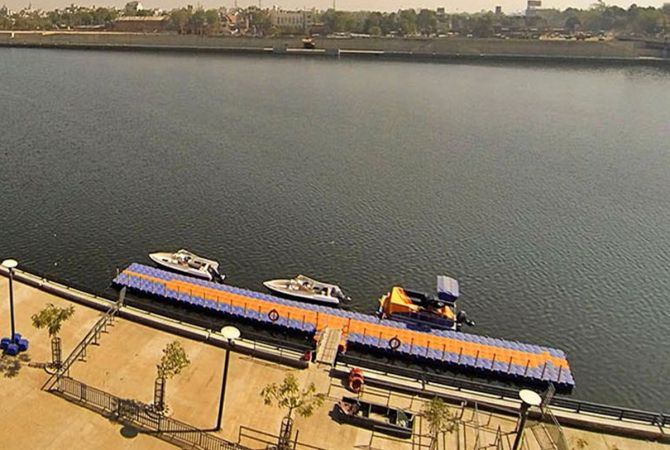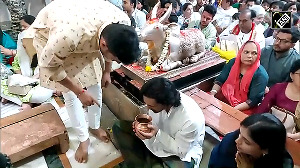A recent study by researchers at the Indian Institute of Technology (IIT) Gandhinagar has established the presence of coronavirus in water samples from the Sabarmati river and two lakes in Ahmedabad city of Gujarat.

While the study, funded by the United Nations Children's Fund (UNICEF), did not reveal if the genes of coronavirus found in the water samples were dead or alive, Professor Manish Kumar, who led the research, has emphasised the need for further probe on the subject to avert any future tragedy.
Following the revelation, the Ahmedabad Municipal Corporation (AMC) has decided to send samples from these water bodies to the Gujarat Biotechnology Research Centre (GBRC).
"The GBRC is the authorised agency of the AMC for water analysis. We have been sending samples to them since the last one year and they submit their report to the state government.
"We have no idea about the IIT's research. However, we will now send samples of these water bodies to the GBRC for a similar analysis," said Harpalsinh Zala, the AMC's city engineer for Water Resources.
The study was conducted between September and December 2020 and water samples were collected from the Sabarmati river, Chandola and Kankaria lakes of Ahmedabad.
"Our aim was to detect the presence of N, S and ORF lab genes of SARS-CoV-2, also called as coronavirus, through RNA isolation.
"We found N-gene copies in the waters of the Sabarmati river, Chandola and Kankaria lakes.
"The ORF lab-gene was not found in Chandola, while S-gene copies were present in all the three water bodies," said Kumar, who teaches in the IIT's Earth Sciences department.
"Although genes of coronavirus were detected, our methodology does not tell us if they were alive or dead. However, we can't just presume that they all were dead. Although virus transmission through water is not proven yet, institutions need to come together and conduct further research on this. Monitoring is needed," the professor said.
He further claimed that if coronavirus genes reached the surface water through urine or excreta of COVID-19 patients, then the genes would have been dead.
However, the genes might have been alive if they came from the mouth of a COVID-19 patient, such as through gargled water, he said.
"We do not know if genes found by us were alive or not. Further research is needed to understand the implications of our findings. Governments should also focus on better solid waste management," said Kumar, adding that the report has been submitted to the UNICEF.











 © 2025
© 2025